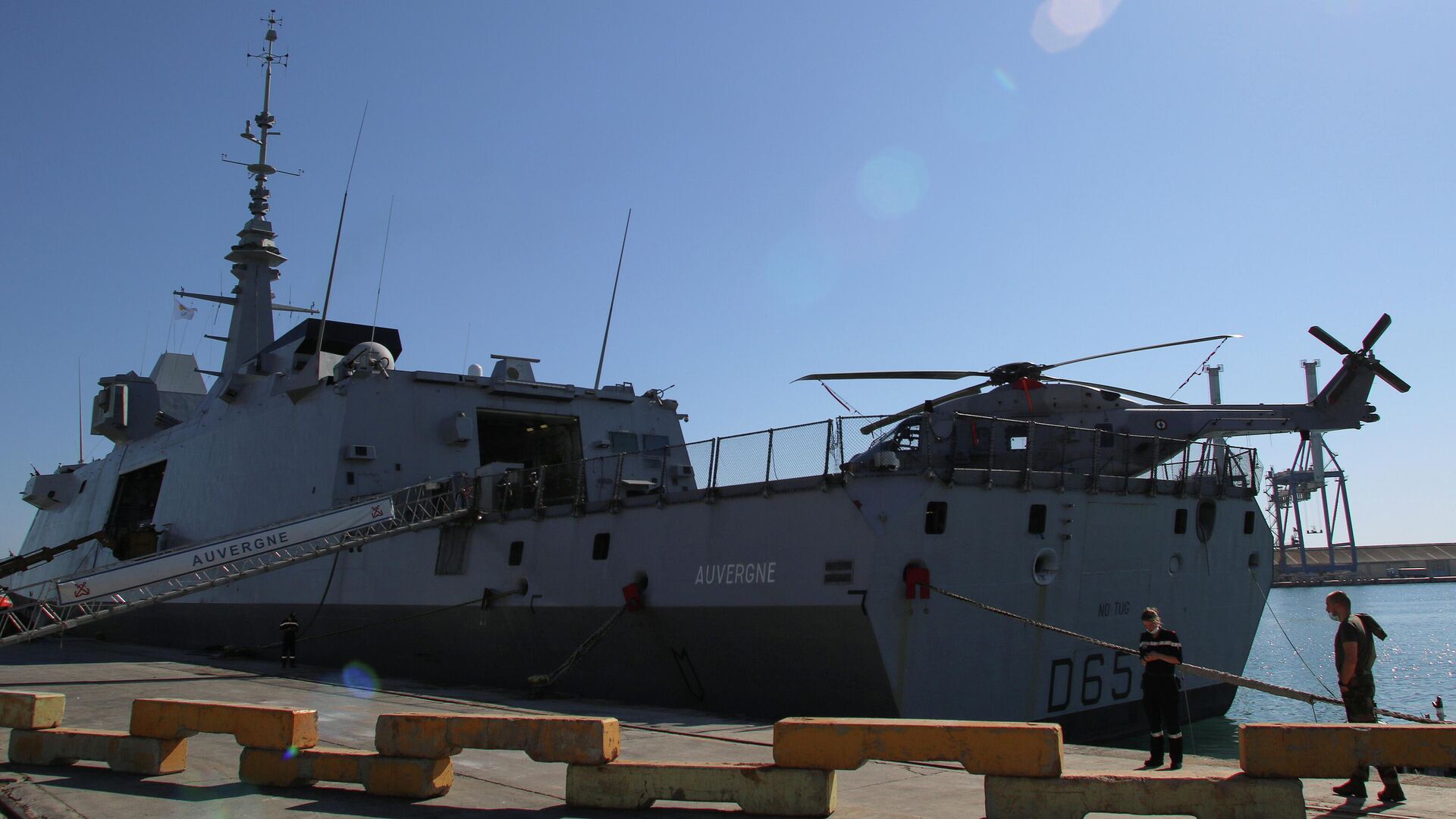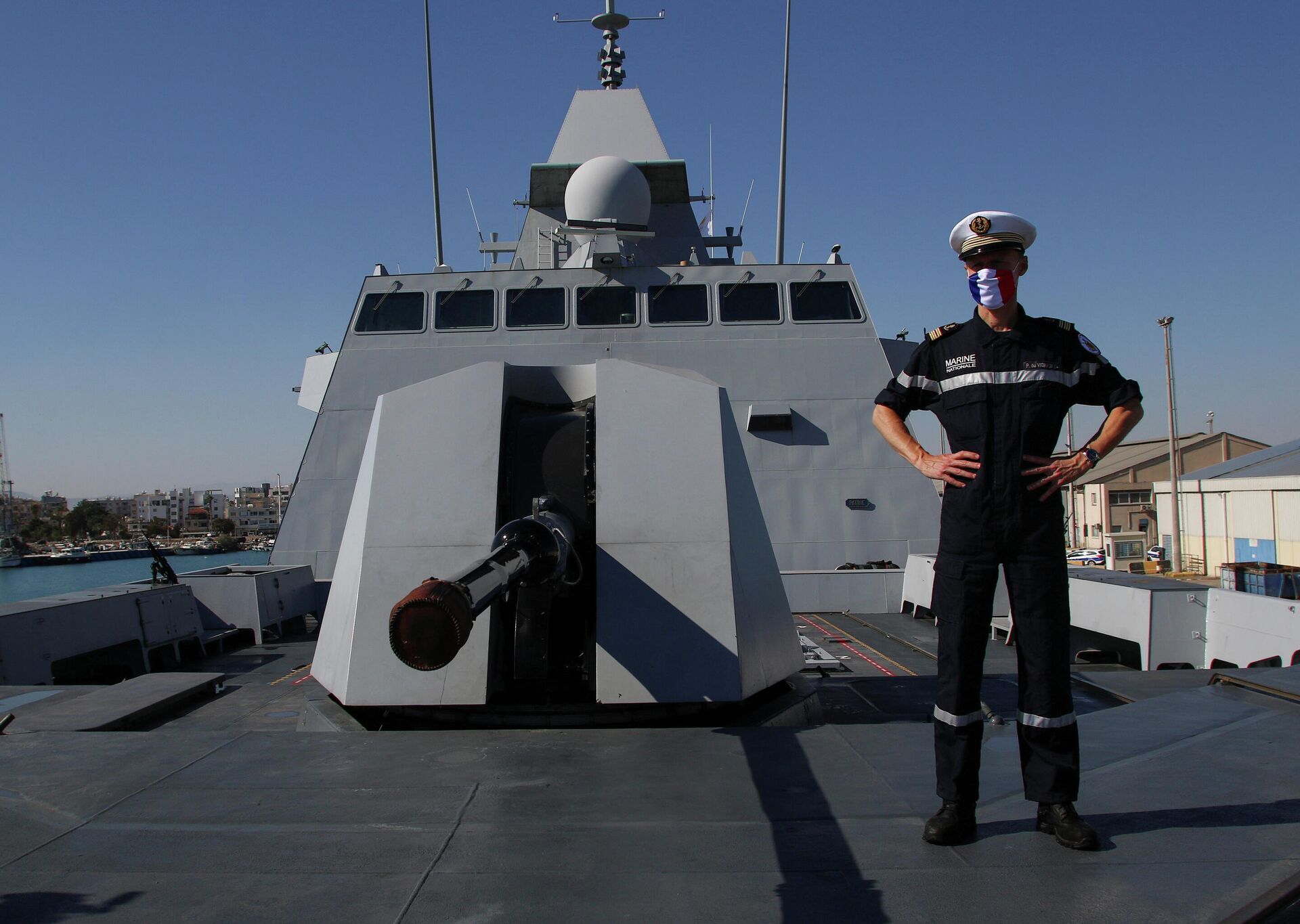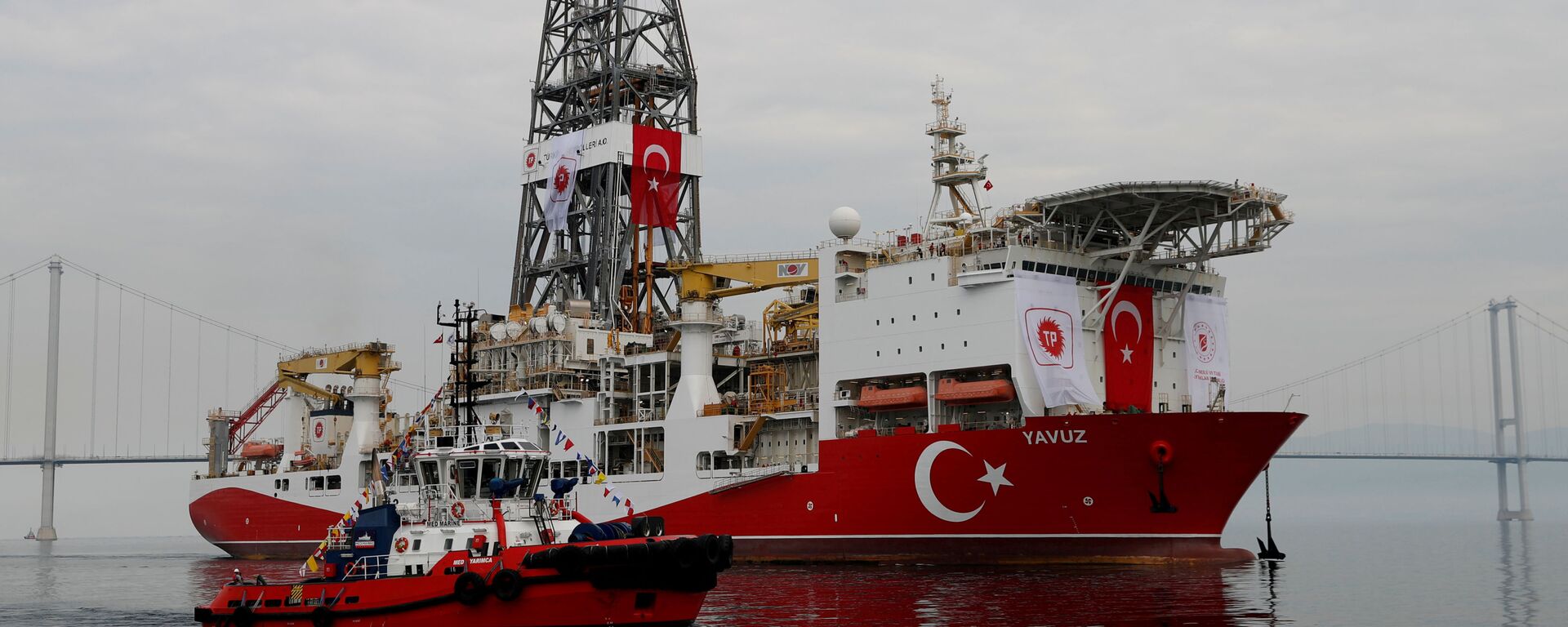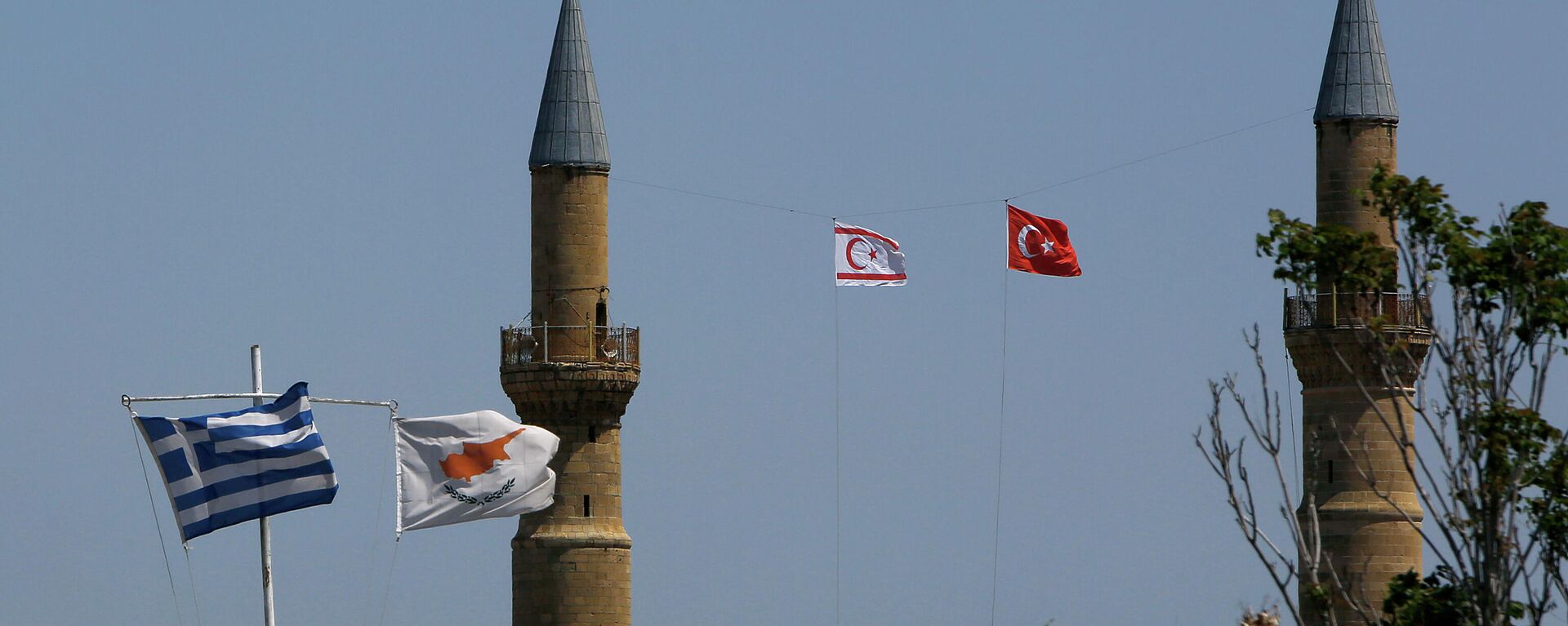French Frigate Bristling With Missiles Deployed to Mediterranean Amid Turkey Tensions
12:25 GMT 09.11.2021 (Updated: 12:45 GMT 09.11.2021)

© REUTERS / YIANNIS KOURTOGLOU
Subscribe
France and Turkey are lined up on opposite sides of a regional dispute over gas drilling rights. In late 2019, Turkey and Libya signed a contentious maritime boundaries agreement laying claims to large swathes of the eastern Mediterranean, angering Greece and Cyprus. Athens and Cairo responded with a maritime delimitation deal of their own.
France has deployed its Auvergne frigate to Cyprus, sending a message to Ankara that Paris remains committed to its Cypriot and Greek partners in the ongoing maritime exclusive economic area (EEZ) dispute.
“This deployment underlines how important France considers this part of the Mediterranean Sea,” Paul Merveilleux de Vignaux, the vessel’s captain, told reporters.
The 6,000 tonne Auvergne has complement of 145 officers and seamen, and is decked out with a bristling array of advanced sensors and weapons systems, including a passive electronically-scanned array radar, two sonars, a 76-mm naval gun, dozens of air defence and cruise missiles, anti-ship missiles and torpedoes. The frigate also carries a lone NH90 multirole helicopter.

Captain Paul Merveilleux de Vignaux poses for a photo onboard the French frigate Auvergne, currently moored at the port of Larnaca, Cyprus November 8, 2021
© REUTERS / YIANNIS KOURTOGLOU
De Vignaux said the Auvergne would be stationed in the region from now until January, and would collect intelligence to “show how the respect of international law and especially freedom of navigation matters” to Paris, while emphasising the country’s “willingness to contribute to the stabilisation of this strategic area.”
The Cyprus deployment is the twelfth for the Auvergne, with de Vignaux characterizing the eastern Mediterranean island, which has been under partial Turkish occupation since 1974, as the “centrepiece” of support to “efficient and sustainable naval operations” by France.
The Auvergne’s deployment comes on the heels of fresh tensions between Nicosia and Ankara amid Turkish warnings demanding that Greece and Cyprus not make any attempts to send research ships to the “Turkish continental shelf,” and Greek and Cypriot condemnation of “illegal” Turkish activities in the eastern Mediterranean. Athens and Nicosia dispute Ankara’s “continental shelf” delineation, pointing out that the claims run into areas close to the island’s northern coast, and even jut into Cypriot waters to the west of the island some 250 km from Turkey’s coast.
The French Warship’s visit also comes ahead of US Vice President Kamala Harris’s trip to Paris as US and French leaders continue to mend ties damaged by the secrecy-laden signature of a new tripartite defence pact between America, Britain and Australia in September which robbed France of a $65 billion submarine contract with Canberra. During her visit, Harris is expected to speak to French President Emmanuel Macron, and other leaders gathered in the French capital to discuss the crisis in Libya.
France and Cyprus maintain warm defence ties, and French energy giant Total has teamed up with Italy’s Eni to conduct offshore drilling in waters off the island’s south coast next year. Paris has regularly deployed its warships, including the Charles de Gaulle aircraft carrier, to the region, and Nicosia allows the French Air Force and Navy to use its airbase and port facilities.
Turkey does not recognise Cyprus’s statehood, and in addition to its own continental shelf claims, says part of the waters belong to the so-called ‘Turkish Republic of Northern Cyprus’, established in 1983, nine years after the Turkish invasion of 1974.
Club Med of Regional Tensions
Turkey and its Libyan, Tripoli-based client state ally penned a maritime EEZ agreement in 2019, delineating claims between the two countries. Greece and Egypt took issue with the demarcation, and signed their own EEZ treaty in 2020.
This Bloomberg map outlines the competing maritime claims in the Mediterranean region. pic.twitter.com/gcQ3S87v7H
— Samuel Ramani (@SamRamani2) March 4, 2021
France, the European Union and the United States have generally supported Greece and Cyprus during the dispute, basting Turkey with sanctions over its alleged unauthorised drilling activities and military flexing. The French government has been a particularly adamant supporter of Athens and Nicosia, stressing the need to ‘defend EU countries sovereignty’, both diplomatically and militarily. Ankara has responded by asking France to mind its own business and accusing Paris of acting like a bully.


